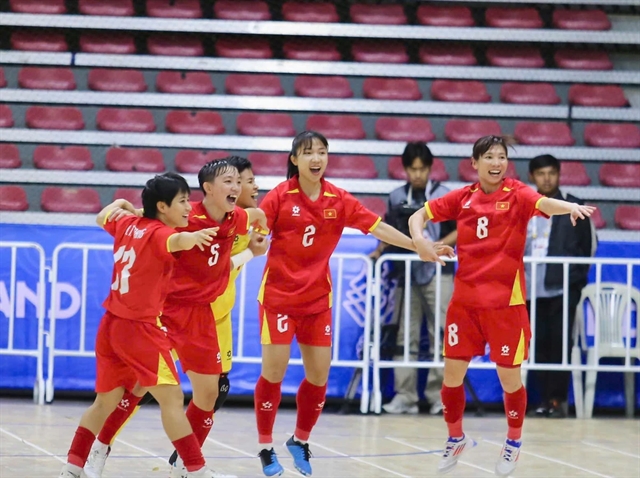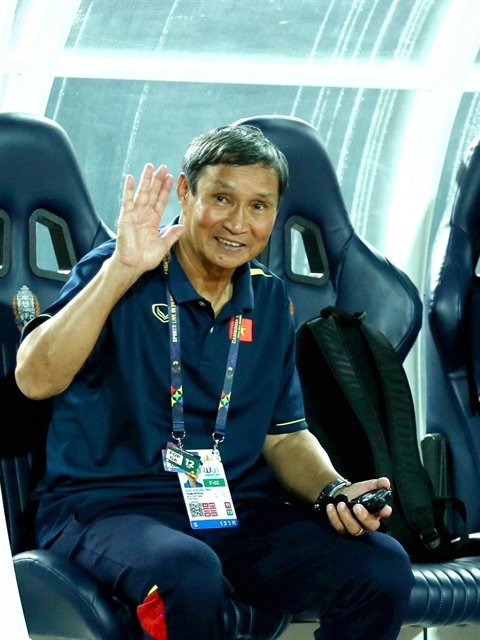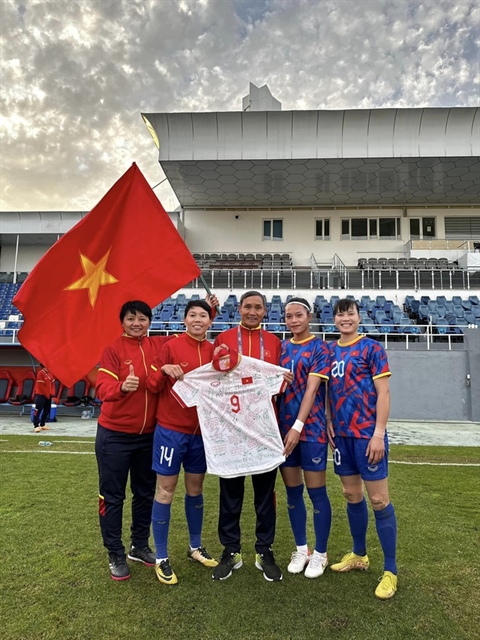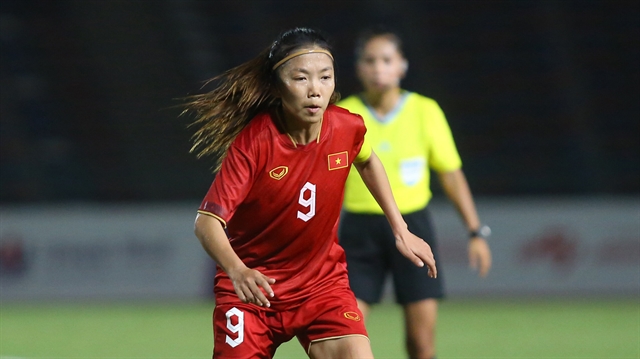 Sports
Sports

 |
| Coach Mai Đức Chung will retire from women's football when contract expires at the end of the year. — Photo thanhnien.vn |
Football
HÀ NỘI — Coach Mai Đức Chung is edging ever closer to his retirement from women's football with his contract expiring at the end of the year.
The match against Japan in the second qualifying round of the 2024 Paris Olympics marked the 72-year-old's last appearance as head coach of the Vietnamese national women's team.
Having expressed his intention to retire after his contract ends in 2023, Chung considered the second qualifying round of the 2024 Olympics as his final tournament this year.
After the conclusion of the Olympics qualifier, Chung took to his Facebook page to bid farewell to the team, expressing gratitude to his players and wishing them success in the future for the continued development of Vietnamese football.
While Chung's contract with the Việt Nam Football Federation (VFF) is set to expire at the end of this year, there have been no discussions between Chung and the VFF.
Symbol of women's football
Coach Chung has become a symbol of Vietnamese women's football, and his career can be divided into three main periods, with two of them dedicated to women's football.
During the first period from 2003 to 2005, Chung led the Vietnamese women's team to two SEA Games gold medals in 2003 and 2005, and they finished as runners-up in the 2004 Southeast Asian women's football championship.
In the second phase from 2016 until now, Chung achieved remarkable success in women's football. He guided his team to four consecutive SEA Games gold medals, setting a record for Southeast Asian women's football.
Additionally, he secured the title of the 2019 Southeast Asian women's football championship. However, Chung's greatest accomplishment was leading the team to qualify for the 2023 FIFA Women's World Cup, marking a historic moment for Vietnamese women's football.
This impressive list of achievements may inspire any coach, but it will inadvertently place pressure on Chung's successor. Women's football coaching requires a unique set of skills, where apart from expertise in the sport, the ability to manage people plays a crucial role. Chung excelled in both aspects, not only in women's football but also in men's football.
He won the V.League 1 championship and the National Cup twice with Bình Dương and Navibank Saigon. Additionally, he played a pivotal role in helping U22 Việt Nam secure the 2008 Merdeka Cup.
 |
| Coach Mai Đức Chung and his players. — Photo toquoc.vn |
Challenging transition
Chung's farewell to the team marks the beginning of a new phase for Vietnamese women's football - a phase of rejuvenation.
The Vietnamese Football Federation (VFF) and Chung have been formulating a plan to cultivate young talent for several years. However, this can be a challenging task.
Looking at the roster of the Vietnamese team in the past three tournaments, only Nguyễn Thị Thúy Hằng falls within the age group of 1996 to 1999.
The lack of talent in this age range has resulted in heavy reliance on players around the age of 30, such as the recently retired Trần Thị Thùy Trang, Huỳnh Như, Trần Thị Thu, Phạm Hải Yến, and Nguyễn Thị Bích Thùy.
In the next two years, it will be challenging for these veteran players to maintain their physical strength and performance. However, the current crop of young players is relatively thin.
"I have observed over time and noticed that the next generation of footballers does not possess the same level of talent as their predecessors. To bridge this gap, we need to invest time," Đào Huy Hùng, the head of HCM City's women's youth teams, said.
"Currently, the VFF has plans and directions for U16 and U19 tournaments to identify players for the national team. However, the number of participating teams in these tournaments is too low. With such limited participation, we do not have a sufficient talent pool for the national team."
Along with the internal challenges, external factors will also influence the future success of the Vietnamese women's team. Competitors within the region and the continent are growing stronger.
Previously, the SEA Games gold medal was largely contested between Việt Nam, Thailand, and partially Myanmar; but now, the Philippines have emerged as a formidable force not only in the region but also in Asia.
 |
| Striker Huỳnh Như still has a superior level compared to her juniors, but she can't maintain her ability to play football at the peak for some more years. — Photo vtc.vn |
The chances of Vietnamese football participating in the 2027 FIFA Women's World Cup will become even more difficult.
The North Korean team have returned to the international arena following the COVID-19 pandemic. Australia will compete for a place in the final round rather than participating as the host, as they did in the 2023 World Cup.
Uzbekistan has also emerged as a new challenge after showcasing their abilities by securing fourth place at the ASIAD 19. Recently, Uzbekistan defeated the Vietnamese team in the second qualifying round of the 2024 Olympics.
Regardless of whether coach Chung retires or continues, the Vietnamese women's team must enter a new era. This transition period is fraught with difficulties, but it is necessary for the development of the team. VNS




